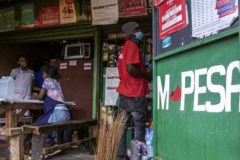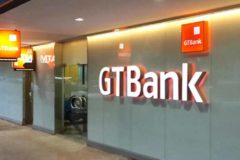Glovo, a Spain-headquartered on-demand delivery platform will be launching in Nigeria soon. The Spanish unicorn present in 200 cities across the world refers to itself as an “anything” delivery app that delivers whatever you need, from food to your house keys, or even a drug prescription.
If Glovo sounds like a name you’ve heard before, that’s because in 2019, the company initially announced that it would be expanding to other African markets, including Nigeria. But not much was heard following the announcement, and it didn’t look like it was happening anymore.
Hello (finally) Nigeria
Some days ago, a job posting for a senior position in Glovo Nigeria caught our eye.
We reached out to the company’s manager for Sub-Saharan Africa, William Benthall who declined to comment on Nigeria launch plans at this time. However, we learned that Nigeria is just one of the African countries on their list.
“In terms of expansion, we just launched Ghana last week, and we are in Cote d’Ivoire, plus two East African markets and Morocco. We also plan to expand to Tunisia,” says Benthall.
The smell of competition
Information on the company’s website shows Glovo is currently operational in 9 African countries. However, as of 2020, its main competitor, Jumia Food was present in 9 African countries, including Nigeria.
Also, while it’s yet unknown which Nigerian cities Glovo will be present in, JumiaFood already operates in Lagos, Ibadan, Abuja, and Port Harcourt, considered to be the country’s major cities,
Launched in 2013, JumiaFood has also spent a longer time in Nigeria, and therefore has a broader and more in-depth understanding of the market. Basically, they’re going to be tough to beat.
The pandemic has accelerated the growth of the food delivery businesses in Nigeria; as the lockdown disrupted the usual offline channels, and has gotten people used to the convenience of placing online orders. 2021 appears to be the year more entrants come into the market, especially as data shows that revenue in the online food delivery segment in Nigeria is projected to reach US$552m in 2021, with $340m coming from the restaurant-to-customer sub-segment.
Regulation’s ugly head
Competition is not the only hurdle Glovo has to worry about. If only.
In 2020, the Lagos State government banned motorcycles and tricycles in most parts of the state. This ban affected bike-hailing companies like MAX and GoKada. However, the ban did not tamper too much with dispatch and logistics companies, which led to GoKada launching a food delivery platform known as Chop. But the ban shows how the fickle nature of the regulatory environment affects business growth, particularly in this case for delivery companies.
Still, Glovo must have considered these pertinent factors, and their potential launch in Nigeria is a win for consumers who are always looking for more options. Consumers will now have a wider range to choose from depending on which platform meets their demands for safety, lower delivery prices, timeliness, and so on. But will Glovo be the one to unseat Jumia in the food delivery market? Will it be Bolt, or will it perhaps be a service headquartered in Nigeria?
.





















